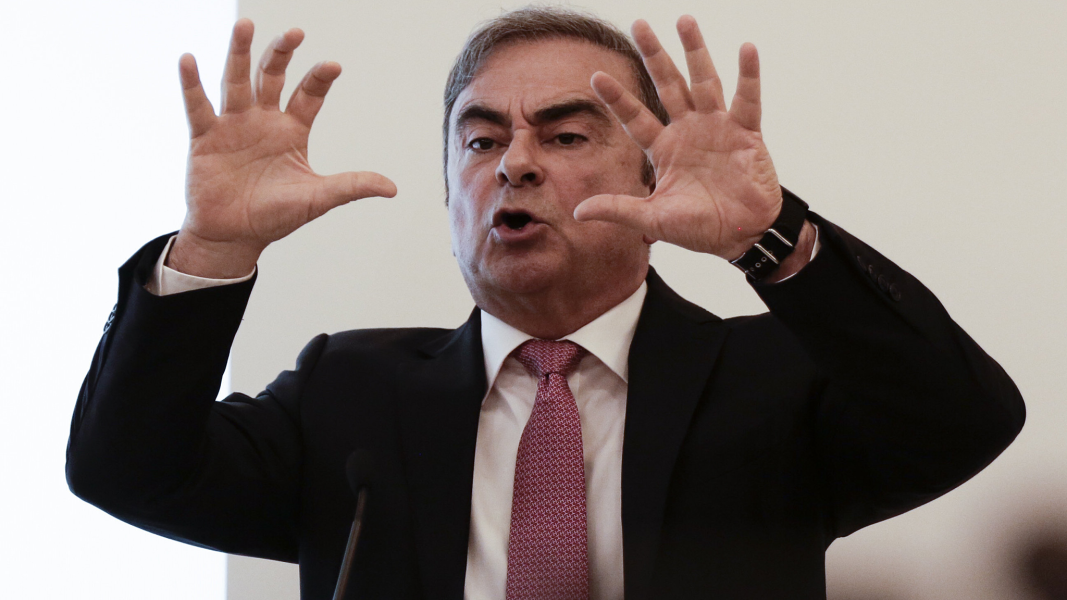A travel ban has been imposed on former Nissan boss Carlos Ghosn on Thursday by a Lebanese prosecutor, a judicial source said, after he was questioned over an Interpol warrant issued by Japan seeking his arrest on financial misconduct charges.
Ghosn, 65, fled Japan to Lebanon, his childhood home, last month while awaiting trial on charges of under-reporting earnings, breach of trust and misappropriation of company funds, all of which he denies.
Lebanese investigators questioned Ghosn on Thursday under the supervision of the prosecutor in Beirut, the judicial source said. The file was referred to public prosecutor, Judge Ghassan Ouiedat, for a decision, the source said.
At a press conference in Beirut on Wednesday, Ghosn went on the attack against Japan’s criminal justice system less than two weeks after becoming a fugitive following his escape to Lebanon.
Ghosn said on Wednesday he was ready to stay for a long time in Lebanon, which does not allow the extradition of its nationals, and a source close to the former executive has said his legal team is pushing for him to be tried in the country.
In addition to the Interpol warrant, Ghosn was questioned over a formal legal complaint filed against him by a group of Lebanese lawyers who accuse him of “normalization” with Israel over a visit he made there in 2008.
Ghosn said on Wednesday he had made the trip as a French citizen and an executive of Renault to sign a contract with a state-backed Israeli firm to sell electric vehicles.
“I was obliged to go because the board asked me to go because they deemed me French and the director of a French company,” he said.
Ghosn apologized for the trip and said he had not meant to hurt the people of Lebanon, which deems Israel an enemy state.
“Of course I apologize for the visit and I was very moved that the Lebanese people were affected by it. The last thing I wanted to do was hurt the Lebanese people,” Ghosn said.
During the visit, Ghosn met Israel’s former prime minister Ehud Olmert, who was premier at the time of the 2006 war between Israel and the Iranian-backed Lebanese group Hezbollah.
Nearly 1,200 Lebanese, mostly civilians, died in the 2006 war and 158 people died in Israel, mostly soldiers.
On Wednesday Ghosn offered to use his expertise to help Lebanon, if asked, as it grapples with a financial crisis, although “not as a politician.”
“I am today proud to be Lebanese and if there is any country in the world that stood by me in these difficulties it is Lebanon,” Ghosn said.
Sign in
Welcome! Log into your account
Forgot your password? Get help
PRIVACY POLICY PAGE
Password recovery
Recover your password
A password will be e-mailed to you.












